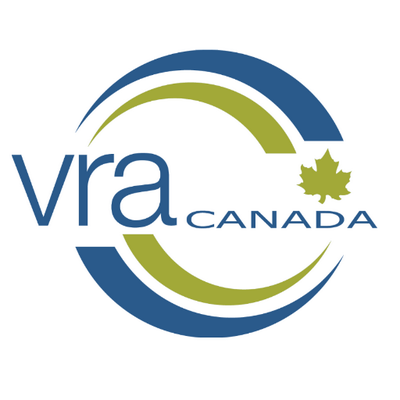HOW TO BECOME A VR
Vocational rehabilitation professionals come from a variety of backgrounds. A recent VRA Canada membership survey indicated that members hold degrees and diplomas in social work, human resources, kinesiology, sociology and even engineering and business, among many others.
If you are interested in becoming a VR professional, there are several pathways to achieve this goal. Depending on the certification you intend to pursue, there is information available on each certification from both VRA Canada and the CVRP.
Below is an overview of the certifications available and the requirements to attain and maintain each, listed under the organization that administers them.
DESIGNATIONS WITHIN CANADA
Registered Rehabilitation Professional (RRP)
Those who are maintaining their RRP, please refer back to the CEU page for information on the domains.
- 40 CEUs over a two-year period
- Note: Not issued since January 2018
Registered Community Support Specialist (RCSS)
level.
- 20 CEUs over a two-year period
Registered Vocational Professional (RVP)
- 20 CEUs over a two-year period
CERTIFICATIONS WITH CVRP
Certified Vocational Rehabilitation Professionals Transferable Skills Analysis (CVRP TSA)
The College of Vocational Rehabilitation Professionals is pleased to announce they have developed a pathway for Registrants who do or want to do TSA work.
The College developed a pathway that will evaluate the Registrant’s demonstrated competency while addressing the critical requirement to protect the public. Current CVRP Registrants wanting to do, or continue doing, TSA work must complete the requirements by the end of December 31, 2021.
All future CVRPs wanting to do TSA scope of work after December 31, 2021 must complete the requirements as per the application process.
Effective immediately, any Registrant who is doing or wants to do TSA work can apply to be evaluated.
For more information, please refer to cvrp.ca
Certified Forensic Life Care Planner (CFLCP)
- Canadian CFLCP currently in development
- Will require an exam
- 40 CEUs (6 ethics)
For more information, please refer to cvrp.ca
International Certified Vocational Evaluator (ICVE)
College registrants apply directly to the US if they want the American ICVE. The CCVE and the ICVE (Canadian) are awarded at the same time if the applicant passes the exam.
- Must hold an ICVE (Canadian or American)
- 40 CEUs (6 ethics)
- American certification
For more information, please refer to cvrp.ca
Canadian Certified Vocational Evaluator (CCVE/ICVE)
- Must hold a CVRP
- Sit for an exam
- Related work experience
- 40 CEUs (6 ethics) over a two-year period
Note: Provisional process for those who do not meet the criteria
For more information, please refer to cvrp.ca
Return to Work Disability Manager (RTWDM)
- Must hold a CVRP, RRP, RVP, RCSS, CCRC, CRC, CCLCP, CDMP, CRTWC or CHRP
- Minimum 800 hours DM work experience
- 20 CEUs (3 ethics) over a two-year period
Note: Alternate ways to qualify.
For more information, please refer to cvrp.ca
Certified Vocational Rehabilitation Professional (CVRP)
- University degree in related field
- 800 hours of VR experience
- Sit for an exam
- 40 CEUs (six ethics) over a two-year period
Note: Alternate ways to qualify. There is a provisional category for those who do not meet all the criteria, including having a degree.
For more information, please refer to cvrp.ca
